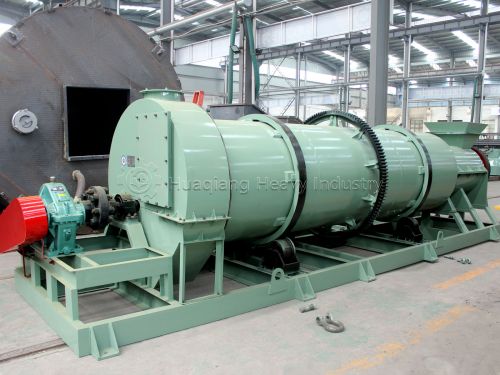In fertilizer production lines, granulators are more than just processing equipment; they are the "core engine" that determines fertilizer quality, efficacy, and user experience. With their precise reshaping capabilities, they transform powdered and paste-like fertilizer raw materials into uniform granules, fundamentally resolving the pain points of traditional powdered fertilizers and ensuring an efficient and stable nutrient supply for agricultural production, becoming an indispensable and critical link in industrial fertilizer production.

In terms of improving fertilizer stability, granulators have completely eliminated the physical flaws of powdered fertilizers. Ungranulated nitrogen, phosphorus, and potassium mixed fertilizers are prone to stratification during transportation and storage due to the large differences in density and particle size of their components. This leads to uneven nutrient distribution during application, impacting crop growth. Granulators, on the other hand, use processes such as extrusion and agglomeration to tightly combine multiple raw materials into granules. This not only prevents component separation but also optimizes granule hardness through the addition of binders, reducing breakage and loss during transportation, ensuring stable fertilizer quality throughout the entire process, from production to application.
Granulators play an even more critical role in optimizing fertilizer efficiency. They can achieve controlled release of fertilizer nutrients by regulating particle size and porosity. For example, in slow-release fertilizer production, granulators encapsulate the fertilizer core within a slow-release film, creating granules of a specific size. This allows nutrients to be slowly released according to the crop's growth cycle, eliminating the rapid loss and seedling burn associated with traditional powdered fertilizers and increasing fertilizer utilization by over 30%. Granulated fertilizers also facilitate mechanized, uniform spreading, reducing manual error, making them particularly suitable for large-scale farmland operations and significantly improving fertilization efficiency.
Granulators also offer the potential for upgrading fertilizer functionality. In bio-organic fertilizer production lines, the granulation process protects the activity of beneficial microorganisms and prevents the inactivation of inoculants due to moisture absorption and clumping of the powdered material. In compound fertilizer production lines, granulators precisely incorporate trace elements to meet the individual nutrient needs of different crops. It can be said that the granulator, with its precise control over the form and performance of fertilizers, has promoted the transformation of the fertilizer industry from "single supply" to "efficient customization", injecting core impetus into the high-quality development of modern agriculture.